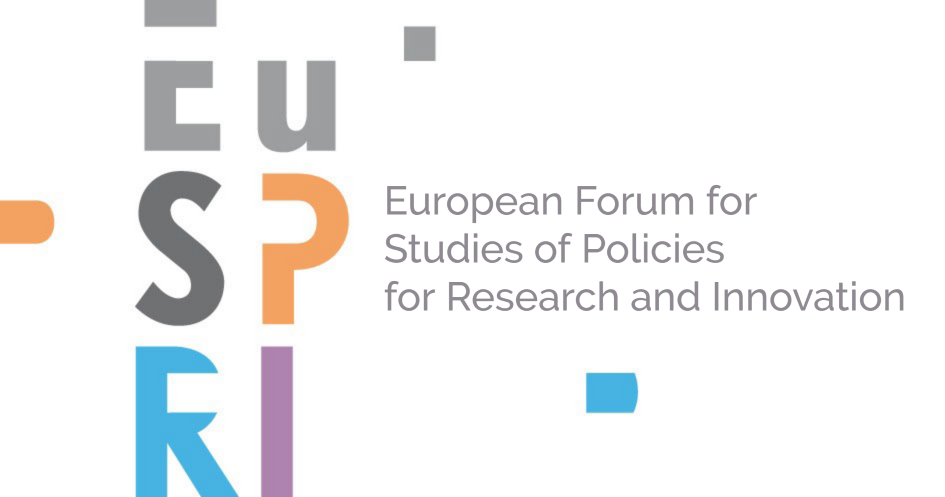Extended deadline: 30 March 2025
Call for contributions
Shaping Societal Futures as a Career Path? Between academia and social impact
As knowledge producers, scientists play a central role in shaping societal futures. As current times are characterised by a plethora of societal challenges and crises, ranging from climate change to demographic changes, accompanied by profound technological change, such as the rapid spread of AI, the roles of researchers are also in flux. Especially relevant in this regard is also the question of (social) responsibility and objectivity of science. Although scientists – and consequently their scientific work – are shaped by personal views as well as the (political and social) environment in which they work, science is expected to be objective in its production of knowledge. Within the context of this year’s Eu-SPRI Early Career Event, we will discuss these questions of responsibilities and tasks of (early career) researchers.
A relevant question for this discussion is: how do you achieve impact with your research? And does striving for societal impact hinder the development of an academic career? These questions touch upon recent debates on quality, and especially on the quality measurement, in academia. To advance an academic career, the focus remains very much on producing high-impact articles, where high-impact is measured by impact factors that merely measure how many other researchers cite your work, but that is near meaningless in the wider societal debates (not in the least because a great number of journal articles is hidden behind a huge paywall). Societal impact, on the other hand, can best be achieved through activities that have not traditionally been highly valued within the academic system but which are increasingly encouraged through transdisciplinary research and a growing importance of universities’ Third Mission.
Transdisciplinary research is seen as particularly suitable to produce knowledge with high societal value and practical, real-world, innovations. However, transdisciplinary research poses challenges for researchers. Firstly, researchers need to perform many different roles and therefore need new skills and competences. Secondly, transdisciplinary research is time consuming, meaning that scientists have to spend large parts of their time getting to know and earn the trust from research participants and project management tasks, rather than with producing scientific publications. As an early career researcher, oftentimes in precarious positions with short-term contracts, it can be either risky or unattractive to engage in this kind of research and teaching. Within the Early Career Event, we will discuss these topics with experienced researchers.
Concept and working methods
The Early Career Event will be kick-off with a welcome address by Prof. Dr. Jürgen Howaldt. Early career researchers will subsequently shortly present their work at the event, focusing on challenges and opportunities for achieving impact. They will be supported by four selected senior researchers (Alejandra Boni, Toni Caro, Christoph Kaletka and Klaus Schuch), with practical experience with transdisciplinary research and who will share their insights and lessons learned. In plenary sessions and group discussions, challenges and opportunities for impactful transdisciplinary research will be addressed and discussed in a constructive environment based on mutual learning.
Target audience and criteria for participation
We invite submission from early career researchers (PhD candidates and early career Postdocs) that face and/or address these challenges in their research practices. Participants are expected to write a short motivation letter (max. 500 words), addressing their topic of research, experiences and challenges with balancing academic output with societal impact, the role of transdisciplinarity in their work, and hopes and expectations for achieving impact through their scientific work. Early career researchers will shortly present their work at the event, with a focus on challenges and opportunities for achieving impact. In order to allow for fruitful discussion, the number of participants will be limited to 25 early career researchers. In case there are more suitable applicants than spots, participants will be selected by the committee based on the best fitting motivation letters. Registration for and participation in the main conference is a prerequisite for participation in the Early Career Event.
Practicalities
The early career event will take place in-person on the day before the start of the actual Eu-SPRI conference (June 10th). It will be hosted by the Social Research Centre of TU Dortmund University (https://sfs.sowi.tu-dortmund.de/). The participant fee for the event is 50€ (including lunch, coffee/tea, dinner and drinks).
| Early Career Event | 10 June 2025, 09:00 – 17:00 |
| Deadline for applications | 30 March 2025 |
| Notification of acceptance | 04 April 2025 |
The motivation statement should be submitted via email to euspri2025.sfs@tu-dortmund.de
